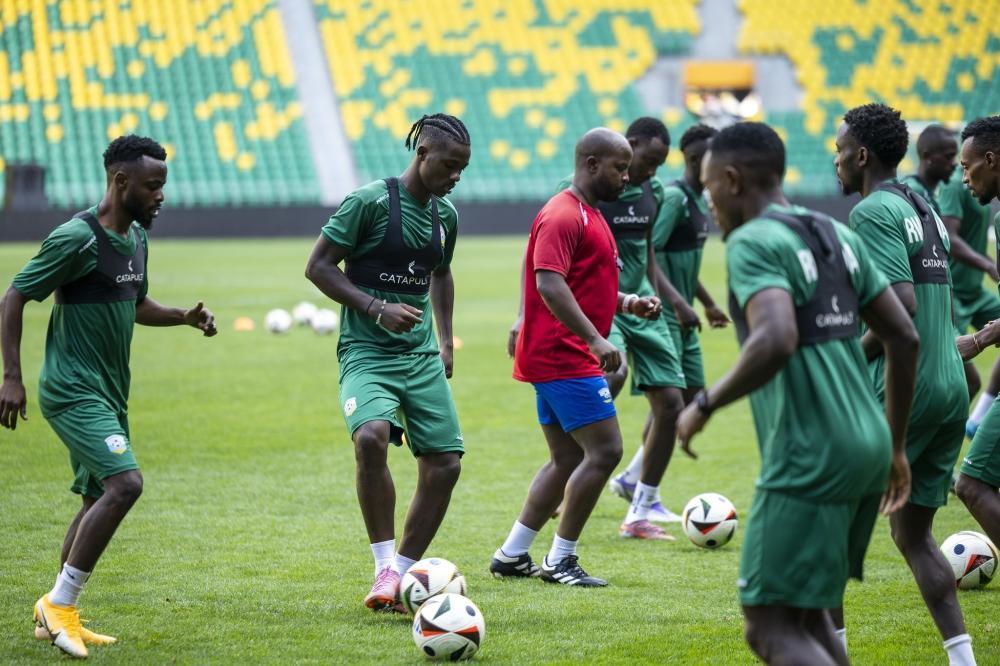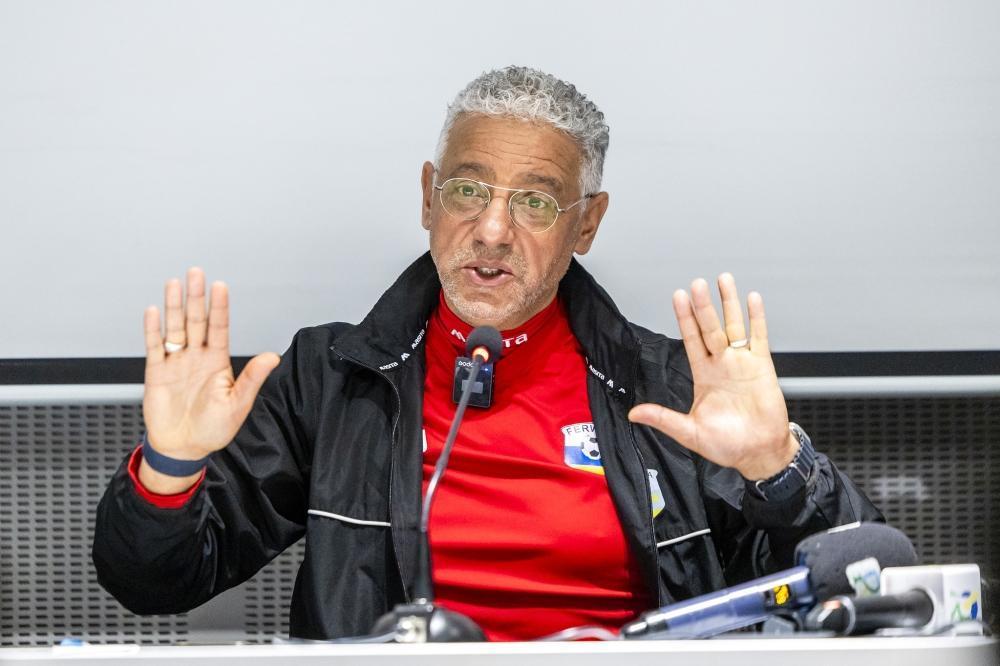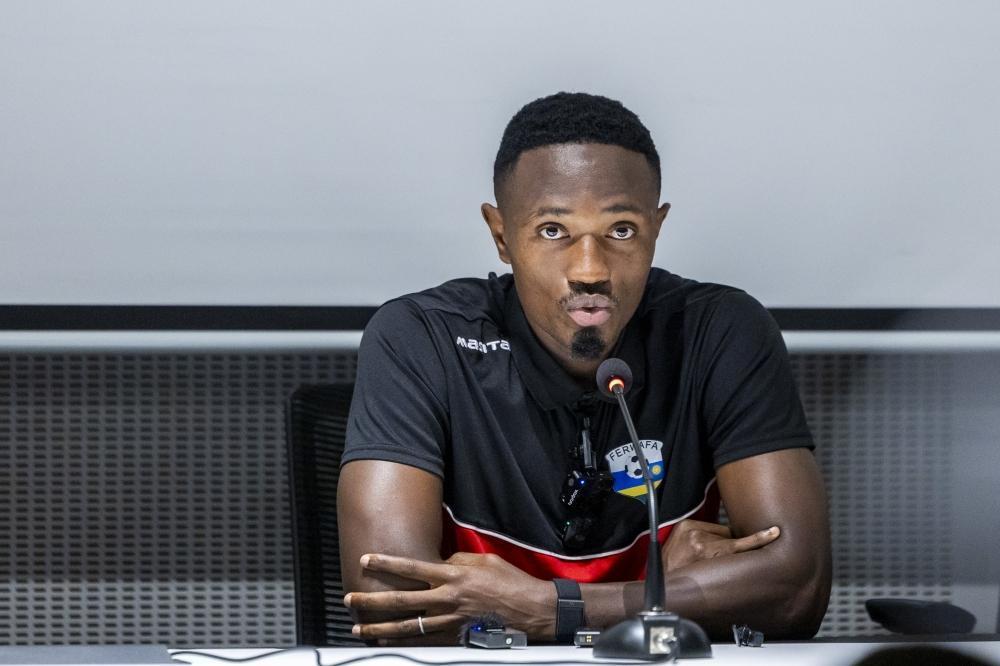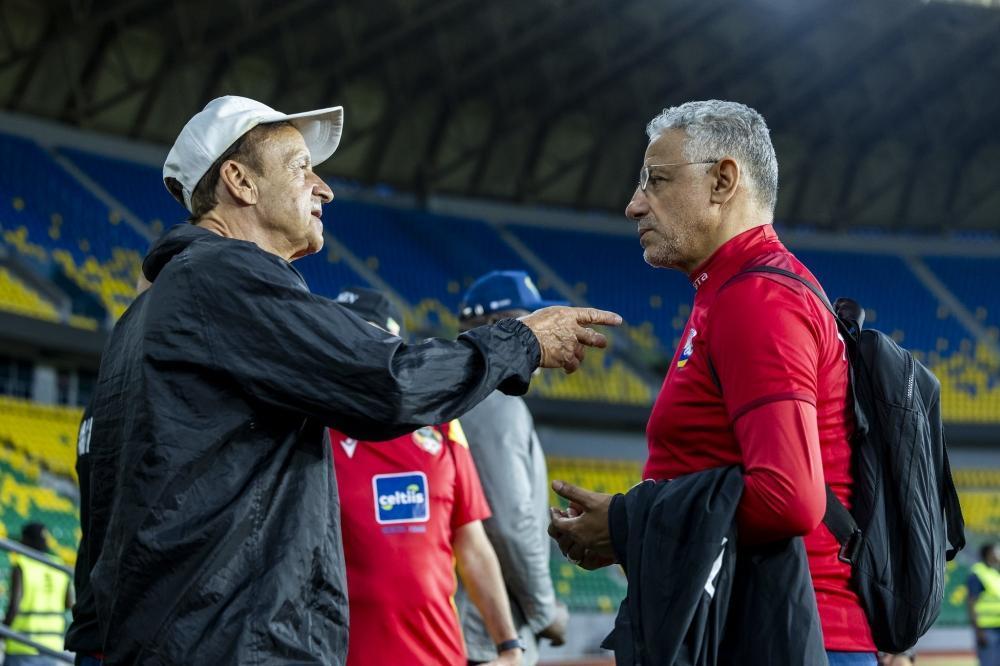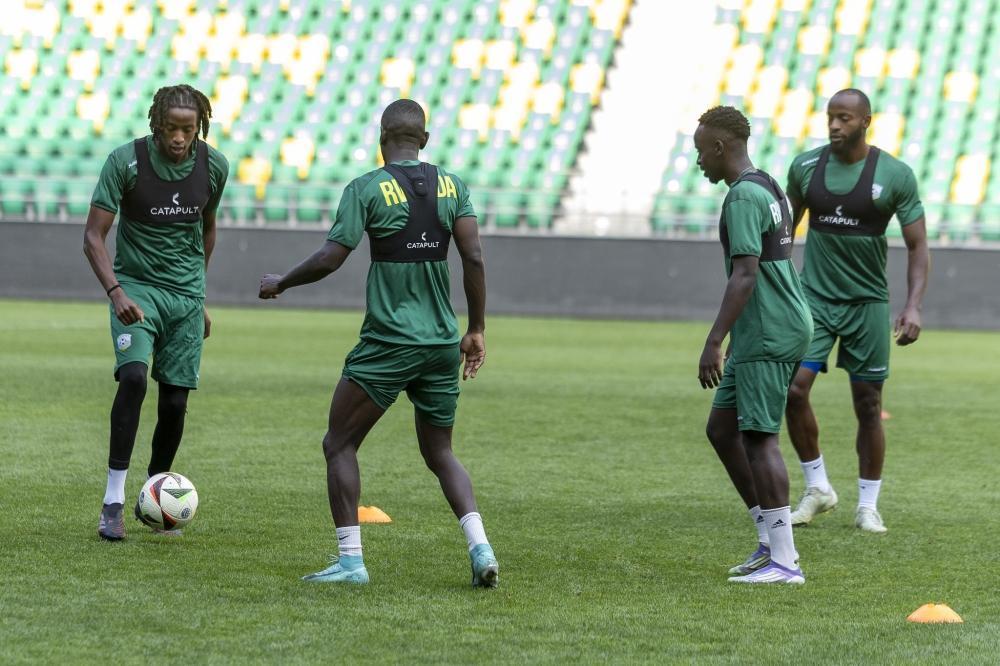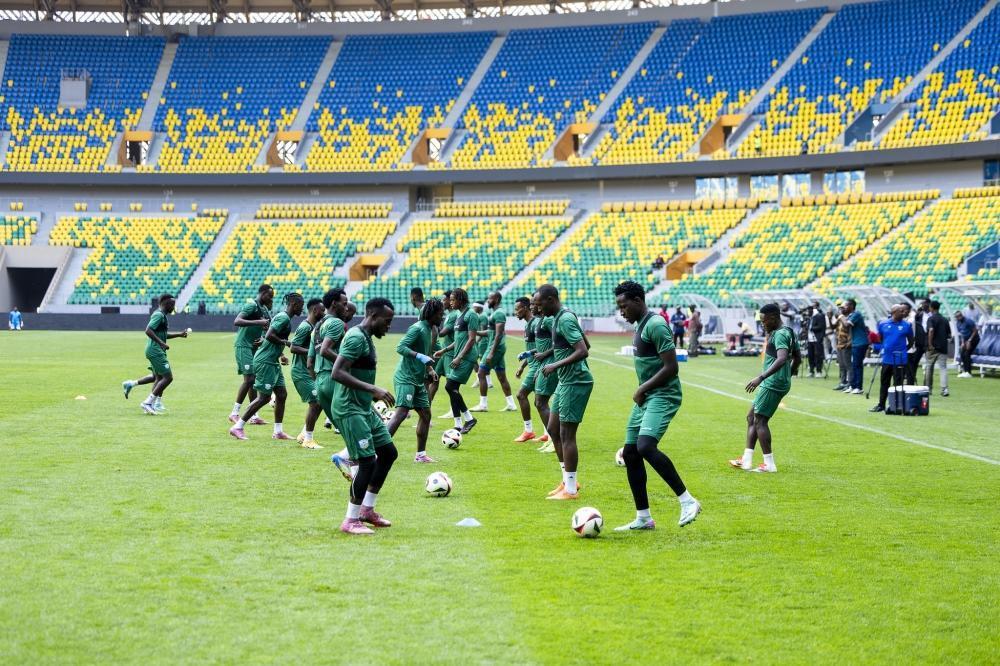Africa-Press – Rwanda. Maybe it’s not the time to ring the alarm bell. Not the moment to press the panic button, but it’s hard to deny the fact that Rwanda head coach Adel Amrouche is a man under pressure.
Failure to get a good result against Benin in the penultimate FIFA World Cup 2026 qualifying campaign on Friday, October 10, at Amahoro Stadium, will sink him even deeper in trouble.
As Amavubi gear up for a crucial World Cup qualifier, Amrouche’s position is under intense scrutiny, not for anything but his record of just a solitary win from six matches since taking over for Torsten Frank Spittler.
The Belgian took over as Amavubi head coach in March 2025, with the primary goal to qualify Rwanda for the 2026 FIFA World Cup, which will be staged in USA, Canada and Mexico but that is looking unlikely as it has ever been.
With Rwanda sitting in fourth place in Group C, their hopes of reaching the finals tournament for the first time, are hanging by a thread, if any at all. The outcome of this match could determine whether Amrouche’s tenure survives FERWAFA’s ever revolving coaches’ door.
Amavubi’s form under Amrouche has been disappointing, to say the least. Since the he took charge, Rwanda has played six matches. Out of those, they have won just one, drawn one, and suffered four losses.
While the World Cup qualification campaign was always going to be a tough challenge, the results have raised serious questions about the coach’s ability to lead the team to greater heights.
To put Amrouche’s record into context, Rwanda’s qualification campaign has been marred by inconsistency. A team that had shown potential under his predecessor, Spittler, has struggled to find its rhythm.
The solitary win came against Zimbabwe in September, a narrow 1-0 victory that seemed to offer a glimmer of hope. However, that success has been overshadowed by a string of underwhelming performances against stronger opposition. Losses to Nigeria (twice) have left the team with little margin for error in their quest for a place in the World Cup.
One of the key issues during Amrouche’s reign has been his inability to get the best out of individual players. Amavubi has failed to produce consistent attacking performances, and the team has struggled to find a clinical edge in front of goal.
Amrouche’s tactical approach has come under scrutiny. The team’s defensive frailties were exposed in several of their losses, and questions have been raised about the coach’s ability to adjust his strategies against stronger opposition.
While the Belgian has attempted to instill a more possession-based style of play, the results have been disappointing. Amavubi has often struggled to break down opponents and has been caught on the counterattack far too frequently.
In matches where Rwanda was expected to compete, they looked disjointed and lacked the cohesion needed to grind out results.
For many fans, Amrouche’s tenure has felt like a regression rather than progress. While expectations were realistic given the competitiveness of Group C, the lack of improvement in team performance has been alarming.
Under Spittler, Amavubi had a more organized defensive unit, and their attacking play showed promise.
Amrouche, however, has failed to build upon this foundation, and his team has looked increasingly disconnected, both tactically and mentally.
Rwanda’s World Cup hopes are now hanging by a thread, and the clash against Benin could be a defining moment for Amrouche.
A win would give the team a chance to close the gap, but another defeat could effectively end their qualification campaign.
In a situation like this, the question must be asked: does Amrouche still have the ability to turn things around? The answer, in a postcard!
Sacking the coach now may seem like an easy decision, but it’s not without complications. Amrouche’s tactical approach may not be the issue, but rather his inability to inspire his players to perform at a higher level. But this is my opinion, and yeah, what do I know about tactics.
Even with FERWAFA’ high standards of impatience with coaches, changing at this stage of the campaign could destabilize the team even further, and with the final qualifier against South Africa four days away, continuity could be key.
However, the growing frustration among fans is palpable. Time and time again, the supporters have witnessed a lack of progress, and the team’s performances have become more predictable—mediocre at best, if I may say.
Fans have been vocal in their desire for change, especially given the promise shown under Spittler, who managed a better record than any of his predecessors. There is a real sense that the team is stagnating under Amrouche’s leadership.
As Rwanda’s qualification campaign nears its final stages, FERWAFA president Fabrice Shema and his team face a tough decision. Should they stick with Amrouche, and hope for the best going forward, or should they act decisively and make a change?
With Amavubi’s World Cup dreams on the line, at least on paper, this decision could be the most important one for Rwanda’s football future in years.
The upcoming match against Benin may not be a make-or-break fixture for both the team and the coach, but it could influence whether Amrouche keeps his job for the long haul. He signed a 24-month contract.
If Rwanda fails to secure positive results in the next two fixtures, against Benin and South Africa, it will not only end their World Cup hopes but could likely spell the end of Amrouche’s reign.
The fans, who have been patient until now, may no longer be willing to tolerate the lack of improvement and FERWAFA could be forced to make the call that many, including yours truly, are beginning to believe is inevitable. Time will tell.
Rwanda head coach Adel Amrouche spaeaks to journalists ahead of the game against Benin. Amrouche is a man under pressure. Photo by Olivier Mugwiza
Team captain Djihad Bizimana talks to the journalists.
For More News And Analysis About Rwanda Follow Africa-Press

